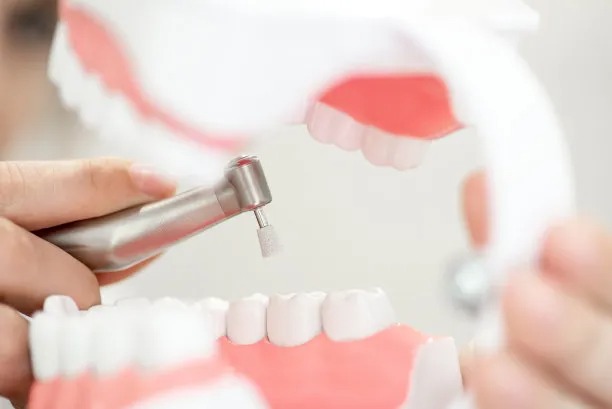Revolutionizing Smiles with Dental Implant Treatments A Comprehensive Guide to Restoring Confidence and Functionality
Summary: Dental implants have revolutionized restorative dentistry, offering a breakthrough solution for missing teeth that enhances both functionality and aesthetics. This comprehensive guide explores the transformative impact of dental implant treatments, focusing on the procedure, benefits, aftercare, and common concerns. By understanding these aspects, patients can regain not only their smiles but also their confidence and quality of life. This guide serves to empower individuals who are considering this innovative treatment option, illustrating the definitive improvements that dental implants can bring.
1. Understanding Dental Implant Procedure

The dental implant procedure typically begins with an initial consultation, where a dentist evaluates the patient’s oral health and discusses potential treatment goals. X-rays and scans may be performed to recognize the quality and density of the jawbone, which are crucial for the success of the implants. This assessment allows the dental professional to create a tailored plan that addresses the specific needs and preferences of the patient.
Following the evaluation, the first step of the procedure involves placing the implant, a titanium post, into the jawbone. This surgical phase is usually performed under local anesthesia to ensure patient comfort. The implant acts as a root for the new tooth and integrates with the bone over several months in a biological process known as osseointegration. This is a critical step that provides durability and stability to the implant.
Once osseointegration is achieved, a crown is crafted and placed on the implant. The customization of the crown to match the natural color and shape of existing teeth is paramount for aesthetic purposes. This final step not only restores function but also enhances the patient’s smile, providing a permanent solution to tooth loss.
2. Benefits of Dental Implants
One of the most significant advantages of dental implants is their permanence. Unlike dentures, which may need frequent adjustments or replacements, dental implants are designed to last a lifetime with proper care. This durability provides peace of mind, allowing individuals to enjoy their favorite foods without concerns about their dental solutions slipping or failing.
Additionally, dental implants contribute to preserving jawbone health. When a tooth is lost, the adjacent bone can deteriorate over time due to lack of stimulation. Implants mimic the natural tooth root, helping to maintain bone density and structure. This feature is essential not only for aesthetic reasons but also for avoiding issues such as facial sagging or premature aging.
Moreover, dental implants significantly improve oral health compared to other alternatives. They don’t require modifying adjacent teeth like bridges do, preserving more of the natural tooth structure. Patients also find that maintaining dental hygiene is easier with implants, as they can care for them just like regular teeth, leading to better overall oral health.
3. Aftercare for Dental Implants
Post-operative care is crucial for ensuring the longevity and success of dental implants. Patients are typically advised to follow a specific oral hygiene routine that includes brushing, flossing, and regular dental check-ups. These practices assist in preventing infections and maintaining healthy gums around the implant.
In the immediate aftermath of the procedure, it is essential to manage discomfort or swelling using prescribed pain relief medications and following the dentist’s advice regarding diet. Soft foods are often recommended for the first few days to avoid putting unnecessary pressure on the new implant.
Long-term care entails continuing to avoid smoking and excessive alcohol consumption, as these habits can significantly impact the healing process. Regular dental visits will also help in monitoring the health of the implant, ensuring that any potential issues are addressed promptly.
4. Addressing Common Concerns
Despite the benefits, prospective patients may have concerns regarding the dental implant process. One common worry is the perceived pain associated with implantation. However, the procedure is generally well-tolerated, and local anesthesia is used to minimize discomfort during the surgery. Post-operative pain can usually be managed effectively with medication.
Another concern is the cost of dental implants compared to other restorative options. While it’s true that dental implants may require a higher initial investment, their longevity and the quality of life improvements they provide often render them a cost-effective solution in the long run.
Lastly, some individuals worry about the potential for implant failure. However, studies show that dental implants have a high success rate, especially when performed by skilled practitioners. Factors such as adherence to aftercare instructions and overall health further influence success, highlighting the importance of selecting a qualified dentist.
In summary, dental implant treatments have emerged as a revolutionary option in restorative dentistry, restoring both smiles and confidence for numerous individuals. Patients now have the opportunity to enjoy life more fully, with the benefits of improved functionality and aesthetics. By understanding the procedure, benefits, aftercare, and addressing common concerns, one can confidently navigate the journey towards regaining a radiant smile.
This article is compiled by Vickong Dental and the content is for reference only.



